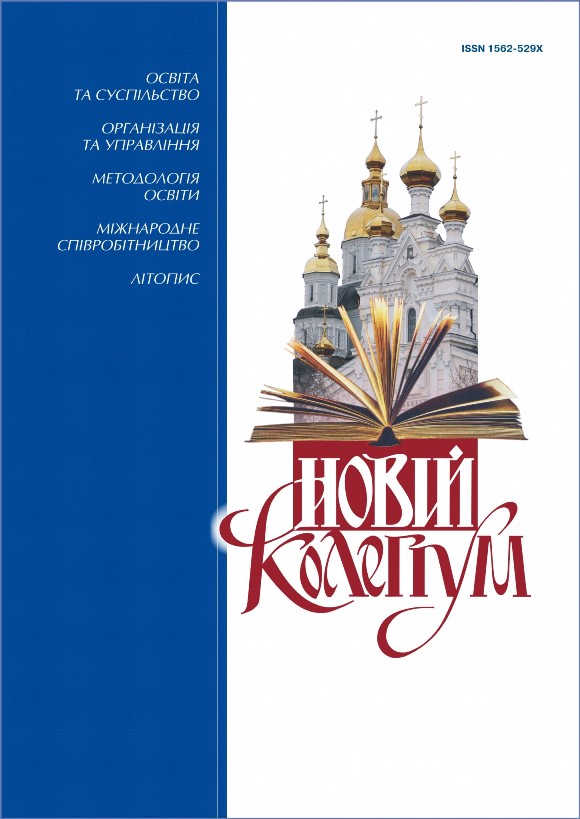Information technologies in student education
DOI:
https://doi.org/10.30837/nc.2021.4.50Keywords:
learning technologies, pedagogical technologies, information technologies, information and communication technologies, motivationAbstract
The process of informatization of education as a component of informatization of modern society is not possible without the introduction of new pedagogical information technologies in the education system. The main methods of using the latest information technologies in the educational process of higher education institutions are considered. The traditional method is to teach with fragmentary use of computers to demonstrate illustrative materials, control knowledge, test, and so on. The basis of the non-traditional method is research work in computer laboratories, computational experiments, the formation of analytical reports or databases. The main priorities of the use of IT in the educational process of the State Biotechnological University are: increasing the efficiency of educational and cognitive activities of students; operational control of the level of knowledge, diagnosing errors; self-realization of personality; additional communication opportunities; research work and search for statistical material; free choice of forms and methods of teaching.
It is concluded that information technologies in the educational process perform educational, upbringing and research functions. Use of information technology allows to create a fundamentally new information educational sphere. It provides ample opportunities for educational activities, affects the redistribution of functions between its participants, increases motivation, develops independence, provides individualization and differentiation of the educational process, contributes to the modernization of the traditional learning system.
References
Мушеник І. Сучасні реалії і тенденції розвитку інформаційних технологій в освіті // InterConf. 2020. Вип. 27. С. 143-146.
Биков В. Ю., Спірін О.М., Пінчук О.П. Проблеми та завдання сучасного етапу інформатизації освіти // Наукове забезпечення розвитку освіти в Україні: актуальні проблеми теорії і практики (до 25-річчя НАПН України) : зб. наук. праць. К. : Видавничий дім «Сам», 2017. С. 191–198.
Биков В. Ю. Сучасні завдання інформатизації освіти [Електронний ресурс] // Інформаційні технології і засоби навчання, 2010. 1 (15). Режим доступу : http://journal.iitta.gov.ua/index.php/itlt.
Векерик В. І., Степаненко В. Ю., Левчук К. Г. Інформаційні технології в освіті – досягнення та проблеми мотивації // Розвідка та розробка нафтових і газових родовищ. 2013. № 1 (46). С. 298-301.
Нанка О. В., Левкіна Р. В., Кускова С. В. Методологія сучасної університетської освіти і науки // Матеріали Міжнар. наук.-метод. конф. «Університетська освіта і наука: традиції та інновації», UESTI-2021. Харків : ТОВ «Стильна типографія», 2021. С. 19-20.
Levkin D., Guliieva D. Competence approach in distance form of learning // The driving force of science and trends in its development: collection of scientific papers «SCIENTIA» with Proceedings of the I International Scientific and Theoretical Conference. Coventry, United Kingdom: European Scientific Platform, 2021. Vol. 2. Pp. 9–11.
Левкіна Р., Цуканов В., Левкін А. Кредитно-модульна система вищої освіти як інструмент формування компетенцій у студентів // Новий Колегiум. 2017. № 2. С. 40–42.
Гордієнко В. П. Дослідно-пошукова робота студентів як чинник самореалізації (на прикладі професійної підготовки молодших спеціалістів біржової діяльності) // Педагогічні науки: теорія, історія, інноваційні технології. 2012. № 7 (25). С. 218–225.
Бочаров Б. П. Інформаційні технології в освіті : монографія. Харків : ХНУМГ ім. О. М. Бекетова, 2015. 197 с.
Левкіна Р., Левкін А., Ряснянська А. Сучасна освіта у структурі сталого розвитку підприємств сучасного бізнесу // Новий Колегіум. 2018. №1. С. 45–47.

